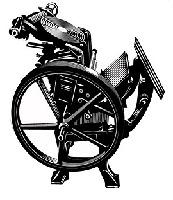- Posts: 4563
- Thank you received: 0
GAO Details Billions in Federal Waste
- Nmysys
-
 Topic Author
Topic Author
- Mountain Legend
-

Less
More
01 Mar 2011 10:16 #1
by Nmysys
GAO Details Billions in Federal Waste was created by Nmysys
Please Log in or Create an account to join the conversation.
- FredHayek
-

- Mountain Legend
-

Less
More
- Posts: 30200
- Thank you received: 178
01 Mar 2011 10:35 #2
by FredHayek
Thomas Sowell: There are no solutions, just trade-offs.
Replied by FredHayek on topic GAO Details Billions in Federal Waste
I could find even more: The Department of Education, what do they do that they states couldn't do for themselves?
Department of Energy? Once again, what do they do that private industry can't do? I don't see the DOE ever expanding the power supply or finding cheaper energy sources.
They only find more expensive, less practical forms of energy.
Department of Energy? Once again, what do they do that private industry can't do? I don't see the DOE ever expanding the power supply or finding cheaper energy sources.
They only find more expensive, less practical forms of energy.
Thomas Sowell: There are no solutions, just trade-offs.
Please Log in or Create an account to join the conversation.
- kresspin
-

- User is blocked
-

Less
More
- Posts: 1077
- Thank you received: 0
01 Mar 2011 10:58 #3
by kresspin
Replied by kresspin on topic GAO Details Billions in Federal Waste
Huckabee wants to eliminate them altogether. My only concern is what impact will all those laid off government employees on welfare have on the economy?
Please Log in or Create an account to join the conversation.
- FredHayek
-

- Mountain Legend
-

Less
More
- Posts: 30200
- Thank you received: 178
01 Mar 2011 11:02 #4
by FredHayek
Maybe they will have to find productive jobs? If we decrease the debt that much, it might make more opportunities.
Thomas Sowell: There are no solutions, just trade-offs.
Replied by FredHayek on topic GAO Details Billions in Federal Waste
kresspin wrote: Huckabee wants to eliminate them altogether. My only concern is what impact will all those laid off government employees on welfare have on the economy?
Maybe they will have to find productive jobs? If we decrease the debt that much, it might make more opportunities.
Thomas Sowell: There are no solutions, just trade-offs.
Please Log in or Create an account to join the conversation.
- PrintSmith
-

- Mountain Legend
-

Less
More
- Posts: 5692
- Thank you received: 40
01 Mar 2011 11:29 #5
by PrintSmith
Replied by PrintSmith on topic GAO Details Billions in Federal Waste
Added all together it is still a fraction of the current deficit spending by the federal government. Assuming for the sake of argument that we could find and eliminate $500 Billion a year in waste, the current budget request would still be calling for over $1 Trillion in deficit spending. That, not the waste, is why we find ourselves $14 Trillion in the hole. Even assuming for the sake of argument that the waste averaged $200 Billion a year for the last 20 years, the federal government would still be $10 Trillion in the red. The problem is not waste, the problem is that the federal government feels it can't function on anything less than 1/5th of the national economy when it's revenues have never returned that sum on a consistent basis. Averaged over the last 65 years the revenues have been closer to 17% than 20%. To conform to historical revenues, the federal budget needs to be $2.52 Trillion dollars in a $14 Trillion dollar economy. Oddly enough, the difference between that figure and the projected deficit are nearly identical since the revenues expected to be collected via the taxes levied are pretty much the same as the have been on average for the last 65 years. We don't have a revenue problem, we don't have a wasting of revenue problem, we have a spending problem.
The problem is that the federal government expects that it can routinely spend in excess of 20% of the national economy while collecting less than 18% of the economy in taxes. That is the problem that needs to be fixed. We need to limit the federal spending to something that it can reasonably, and predictably, be expected to collect in taxes. The current budget calls for over 25% of the national economy to be spent by the federal government. That might be sustainable for a few years, but only if it is followed by a federal government that expects to spend significantly less than their historic revenues in the years following such extreme excesses of spending. That isn't the trend here folks. We don't have a federal government that plans on spending 14% or 15% of the national economy on a regular basis and has exceeded that only temporarily. What we have is a federal government that has spent, and continues to plan on spending, in excess of 20% of the national economy with no relief in sight.
The wars we are fighting in foreign lands are not costing us an additional 10% of the national economy, it is costing us less than 2% in additional spending. It took us a decade to spend 7% of our annual economy. Ending the wars and trimming the discretionary budgets isn't going to get done what needs doing. The federal government has to get out of the individual welfare business in order to achieve this level of reduction in federal spending. It is truly either that or not spending any money at all on every other function of government at the federal level and spending solely on individual welfare entitlements. That is the chasm we are talking about here, the difference between what the federal government says it needs to collect in taxes and what it has historically collected in taxes, even during the most prosperous years the nation has ever seen when citizens were taxed 70% or more of the next dollar they earned. The tax burden of the nation would have to be increased 50%, or more, to supply what the federal government says it needs to fulfill its mission and continue to provide for the individual welfare of the citizens, the common defense of the sovereign states in the union, and every other function of governance that they embark upon, including, but not limited to, ensuring justice, protecting the food and drinking supplies, fixing and building roads, foreign relations, and keeping commerce between the states regular.
The problem is that the federal government expects that it can routinely spend in excess of 20% of the national economy while collecting less than 18% of the economy in taxes. That is the problem that needs to be fixed. We need to limit the federal spending to something that it can reasonably, and predictably, be expected to collect in taxes. The current budget calls for over 25% of the national economy to be spent by the federal government. That might be sustainable for a few years, but only if it is followed by a federal government that expects to spend significantly less than their historic revenues in the years following such extreme excesses of spending. That isn't the trend here folks. We don't have a federal government that plans on spending 14% or 15% of the national economy on a regular basis and has exceeded that only temporarily. What we have is a federal government that has spent, and continues to plan on spending, in excess of 20% of the national economy with no relief in sight.
The wars we are fighting in foreign lands are not costing us an additional 10% of the national economy, it is costing us less than 2% in additional spending. It took us a decade to spend 7% of our annual economy. Ending the wars and trimming the discretionary budgets isn't going to get done what needs doing. The federal government has to get out of the individual welfare business in order to achieve this level of reduction in federal spending. It is truly either that or not spending any money at all on every other function of government at the federal level and spending solely on individual welfare entitlements. That is the chasm we are talking about here, the difference between what the federal government says it needs to collect in taxes and what it has historically collected in taxes, even during the most prosperous years the nation has ever seen when citizens were taxed 70% or more of the next dollar they earned. The tax burden of the nation would have to be increased 50%, or more, to supply what the federal government says it needs to fulfill its mission and continue to provide for the individual welfare of the citizens, the common defense of the sovereign states in the union, and every other function of governance that they embark upon, including, but not limited to, ensuring justice, protecting the food and drinking supplies, fixing and building roads, foreign relations, and keeping commerce between the states regular.
Please Log in or Create an account to join the conversation.
- bailey bud
-

- Mountain Legend
-

Less
More
- Posts: 1849
- Thank you received: 0
01 Mar 2011 16:26 #6
by bailey bud
Replied by bailey bud on topic GAO Details Billions in Federal Waste
The budget for the GAO is somewhere in the neighborhood of $500 million.
Why not cut the GAO? It seems kind of nutty to spend that much money for someone to tell you something obvious.
Why not cut the GAO? It seems kind of nutty to spend that much money for someone to tell you something obvious.
Please Log in or Create an account to join the conversation.
Time to create page: 0.144 seconds






